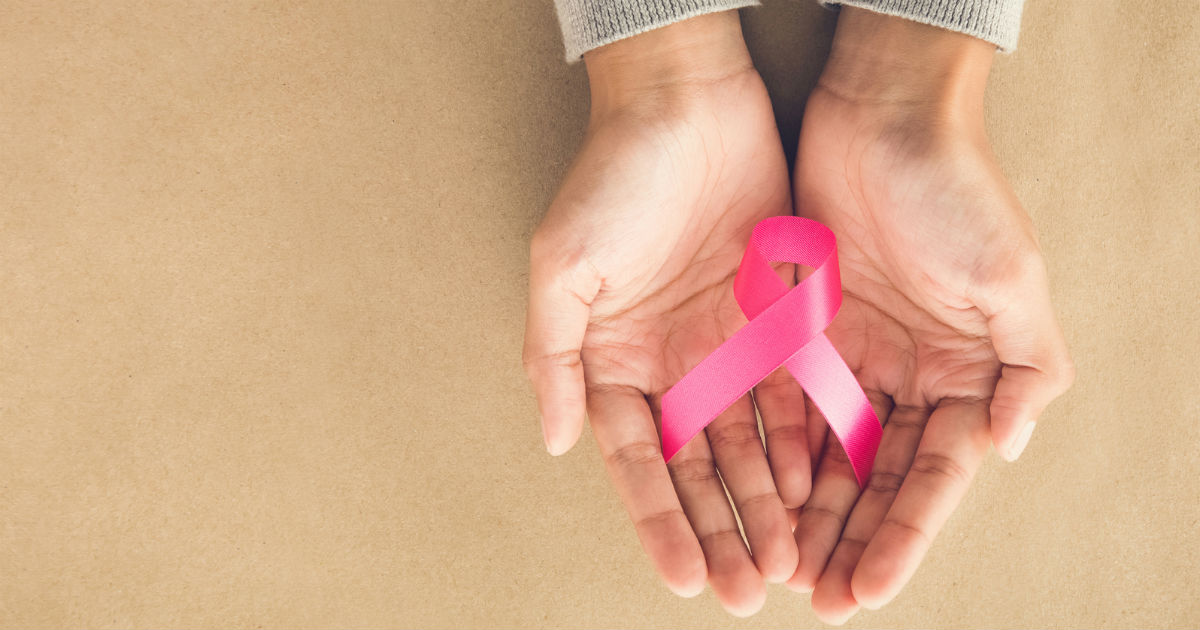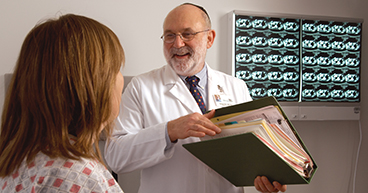
Knowledge may be power, but when it comes to cancer care, experience can be just as important—and instructive. Dr. Karen Smorowski, Radiation Oncologist at our Chicago hospital, knows this firsthand, after a cancer diagnosis gave her work new meaning.
Dr. Smorowski first learned she had cancer in 2010 at the age of 41, after seeking answers for unexplained chest pain. A series of inconclusive tests resulted in an MRI of her breast, revealing stage 1 invasive ductal breast cancer. It was unexpected news, especially since chest pain isn’t a common symptom of breast cancer and a recent mammogram failed to detect the disease. “It was one of the most difficult times in my life,” Dr. Smorowski recalls. “Very scary and just overwhelming.”
Doctors discovered three lumps in her left breast and recommended a single-side mastectomy. But Dr. Smorowski opted for what she refers to as the “triathlon of treatment,” which included a double mastectomy, chemotherapy and radiation treatments, all of which came with side effects. Breast cancer chemotherapy, for example, caused her to lose her hair and triggered early menopause, accompanied by hot flashes. She also experienced weight gain and radiation-related skin irritation. While most of these symptoms subsided after treatment, the hot flashes persisted. In 2015, Dr. Smorowski joined the staff of our Illinois hospital. There, as both a doctor and cancer survivor, she found evidence-based integrative therapies helpful for her and her patients, including mind-body medicine techniques that helped alleviate her flashes.
Today, Dr. Smorowski says her experiences as a breast cancer patient have greatly impacted how she relates to patients. “My journey has taught me even more compassion and empathy, and how important it is to actually listen to the patient and what they’re experiencing,” she says. She didn’t understand what patients meant when complaining about pain related to their hair loss, for example—until it happened to her. Influenced by how breast cancer radiation treatments affected her, she also gives patients time to relax naturally, without direction, before starting radiation. And she relates naturally to women trying to balance treatment regimens and doctor appointments with already-busy work, home and family responsibilities, because it was one of her primary concerns as a patient.
It’s not uncommon for radiation oncologists to develop relationships with patients during their daily interactions over weeks of treatment. But Dr. Smorowski feels she is able to build a special rapport with breast cancer patients. “I definitely feel moved by my patients,” she says. “They teach me about strength and courage and hope and even humor.” Once they discover that she is a survivor, they feel comfortable sharing their concerns about managing chemotherapy side effects, such as hair loss or “curly chemo hair,” a term used to describe hair that grows back curly after chemotherapy treatment. “At that point, I’m not speaking to them as a doctor but as a friend and fellow survivor,” Dr. Smorowski says.
This philosophy has become a driving force that adds meaning to the radiation oncologist’s work day. “When I arrive in the morning, I’m thinking about the patients I’m going to be seeing and how I can help them, but also how my personal cancer journey may help them,” she says.

